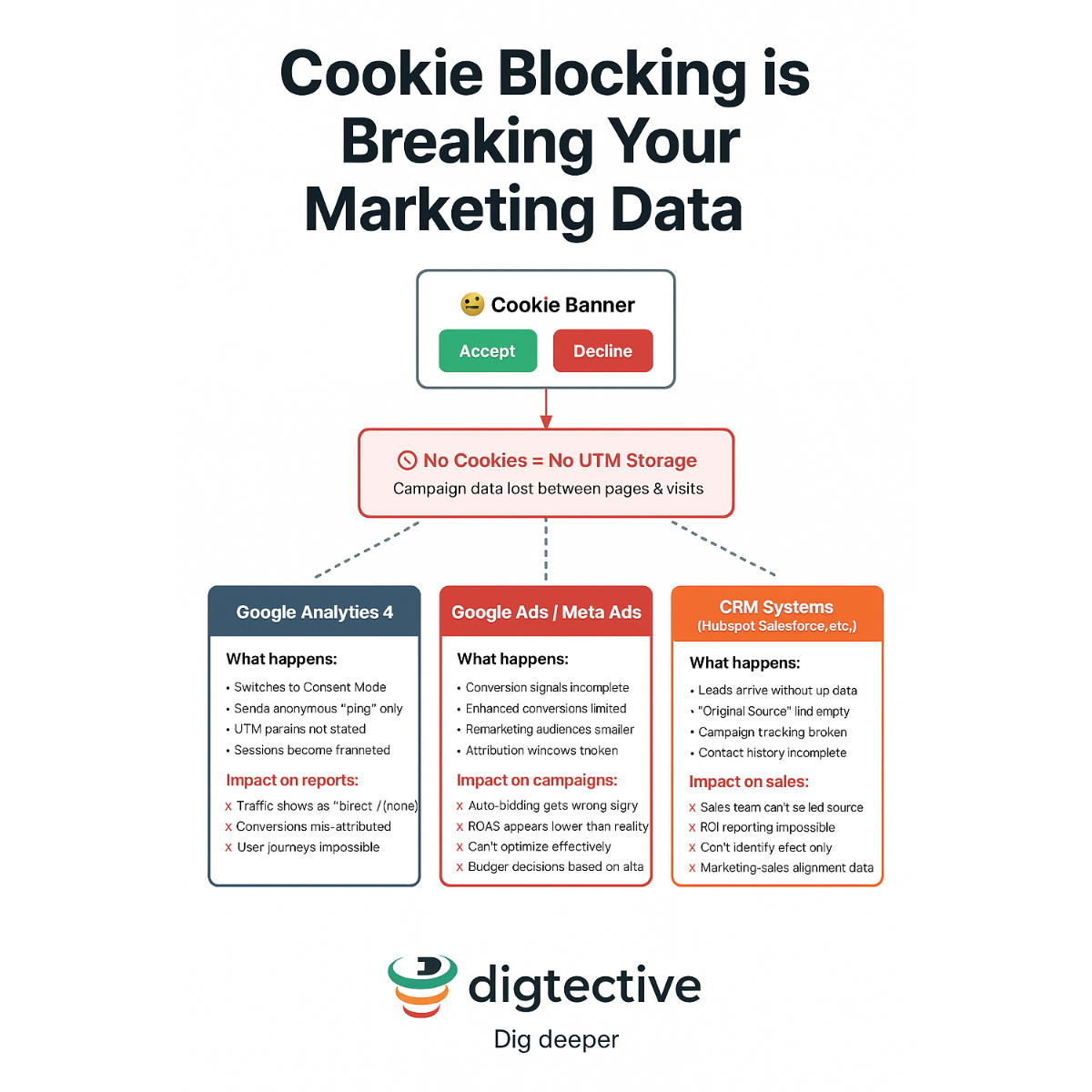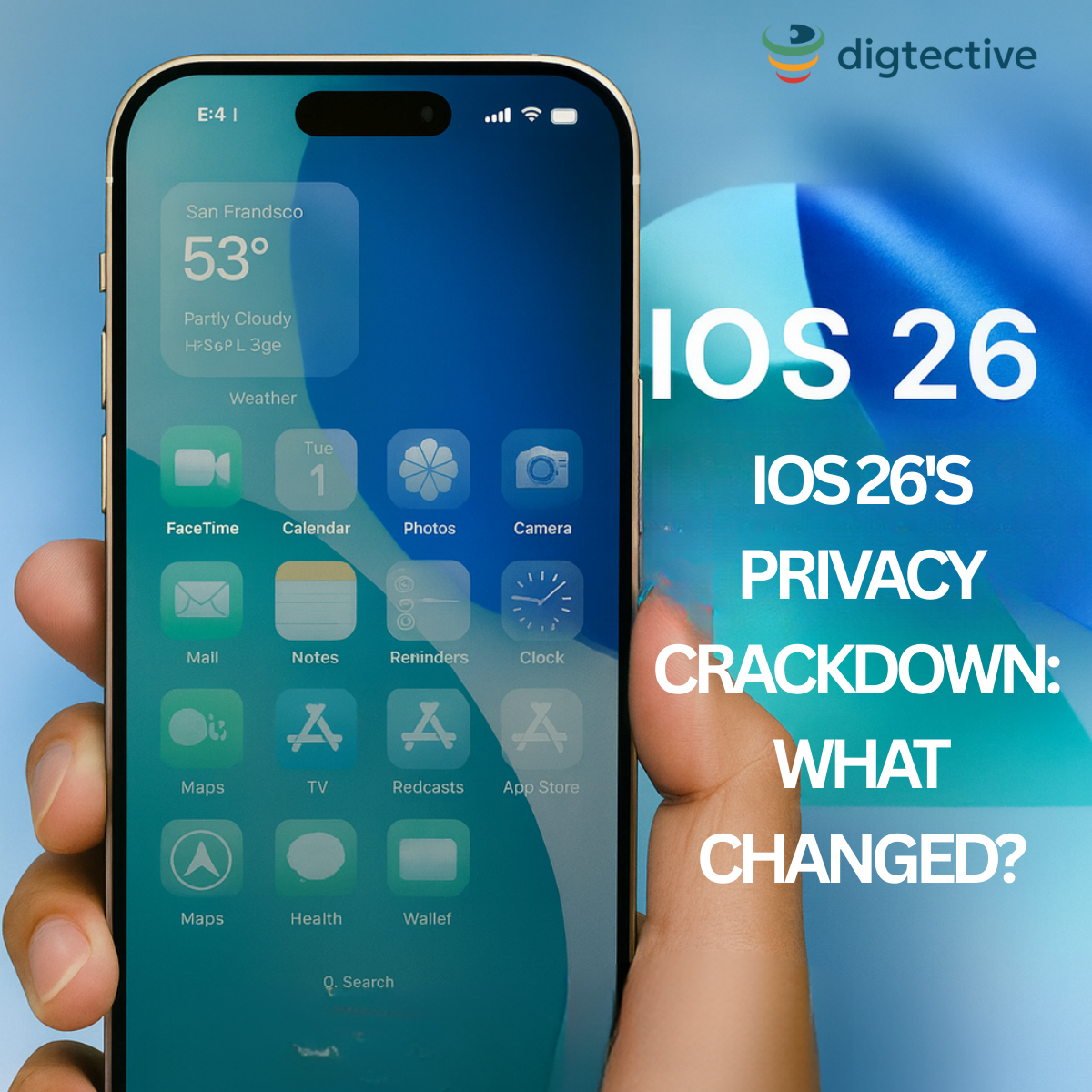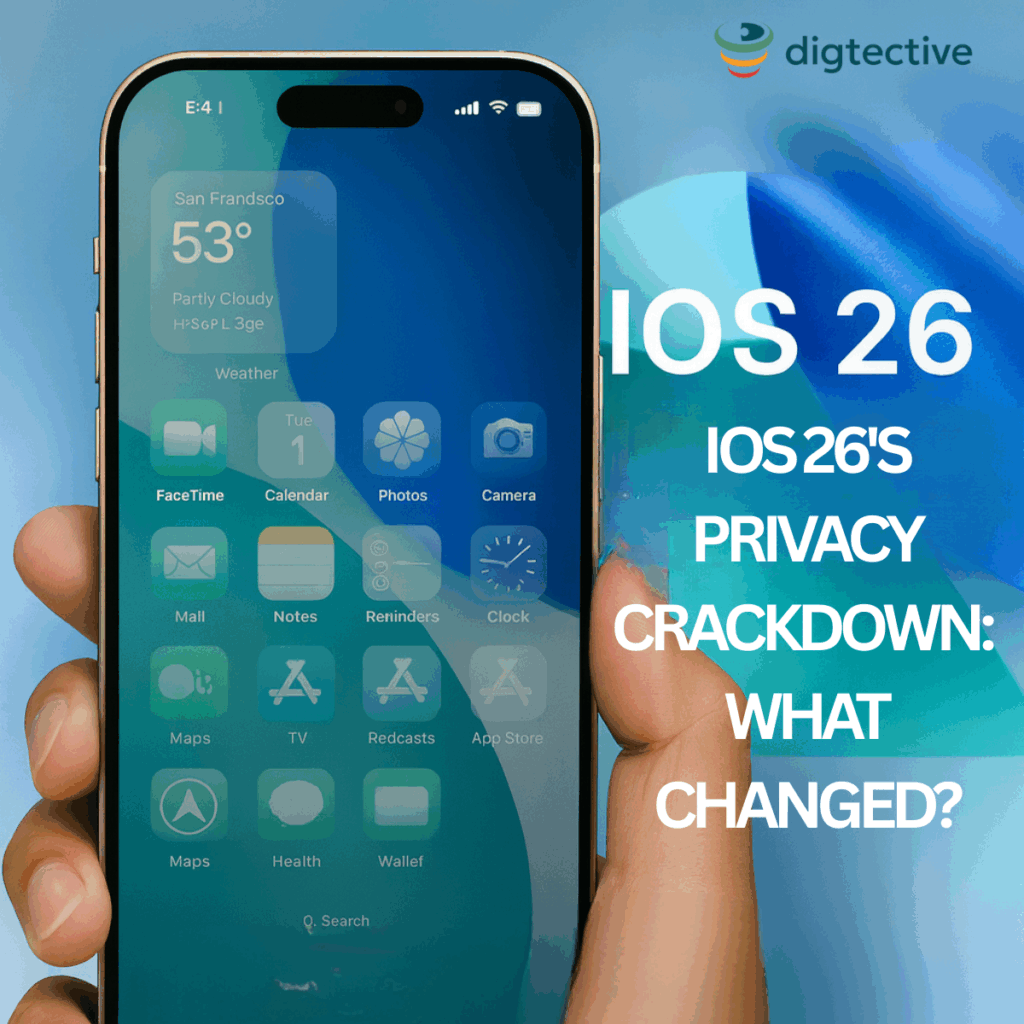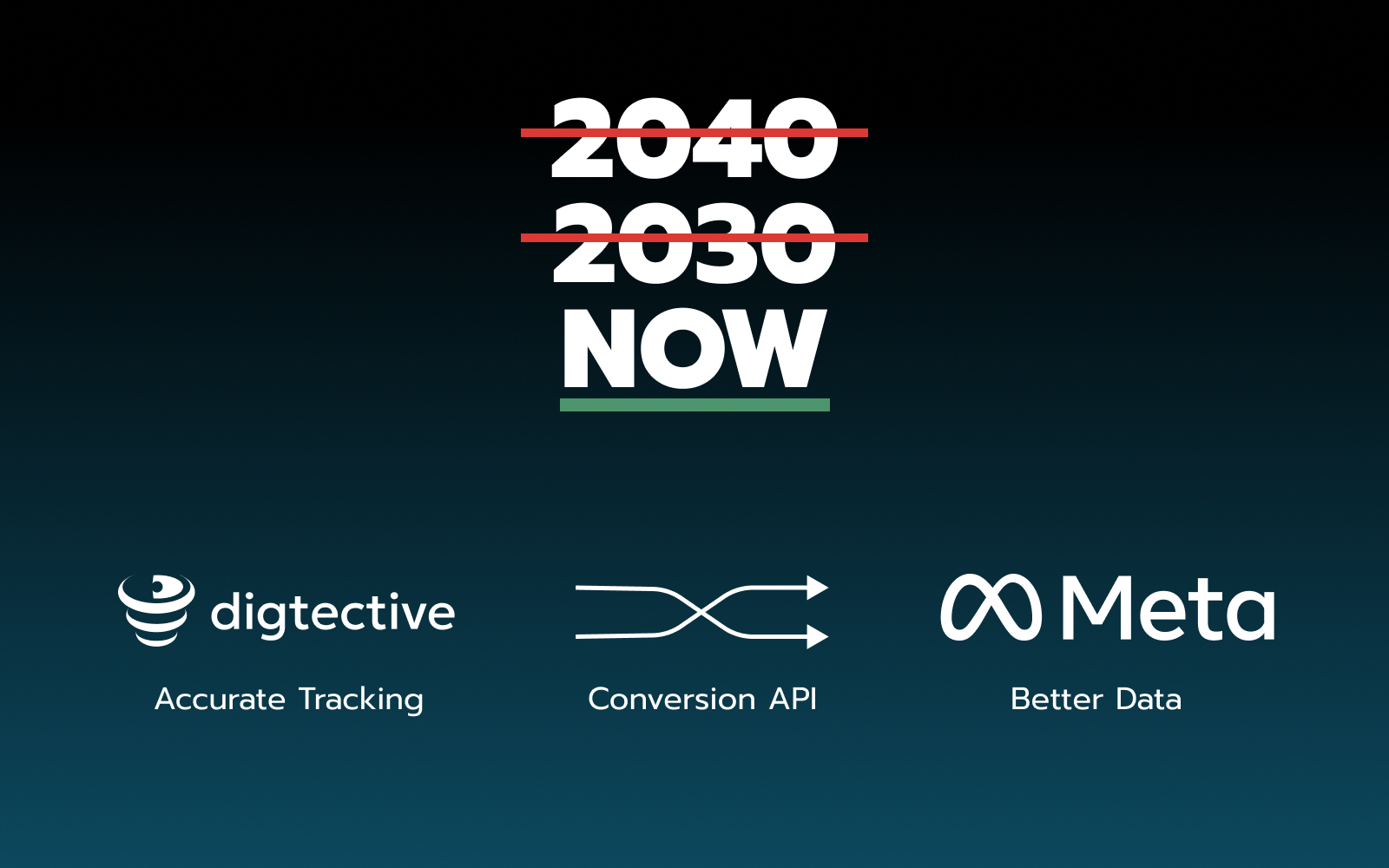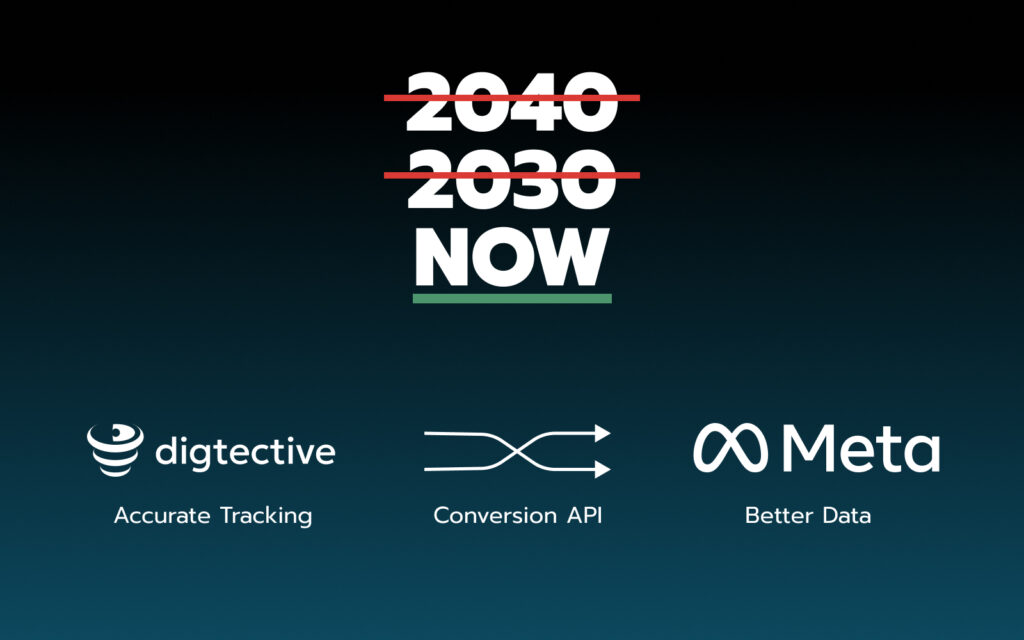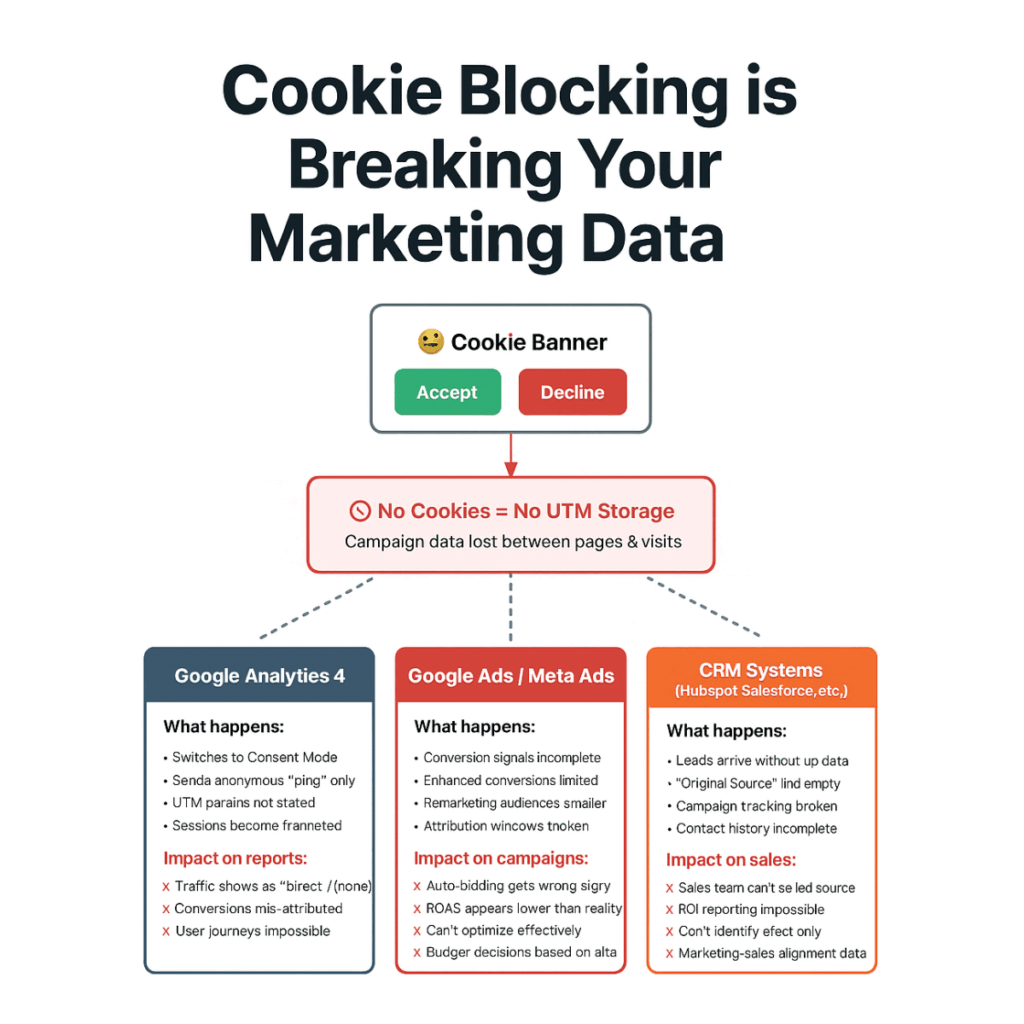
Marketers Love UTM Tags — Here’s Why
UTM parameters are a simple, powerful way to track where your traffic and conversions are coming from. They’re added to links in:
- Google Ads & Meta campaigns
- Newsletters
- Influencer partnerships
- Affiliate links
- Organic social posts
When someone clicks a link with UTMs, the parameters (like utm_source, utm_campaign, utm_medium) tell your analytics tool what drove the visit. This allows you to:
- Track ROI by channel
- See what campaigns perform
- Optimize budgets
- Align marketing and sales
In short: UTMs are the foundation of marketing attribution.
But there’s a silent threat most marketers overlook.
The Silent Killer of Attribution: Cookie Consent
In a perfect world, your analytics tool would remember that someone came from a Google ad — even if they buy a week later.
But we don’t live in that world anymore.
When a user lands on your site, your cookie banner shows up. If they decline, here’s what happens:
- No cookies can be stored
- No persistent UTM memory
- No cross-session attribution
The UTMs may be visible during that first visit, but as soon as they leave the site, the data is gone. If they come back and make a purchase later, analytics will have no idea where they originally came from.
Instead, the sale shows up as:
- Direct / None
- Unattributed
- Invisible to ad platforms
How Big Is This Problem?
This problem is not small. In Europe — where GDPR has been in force the longest — cookie rejection is the norm, not the exceptio
Overall European Behavior (Advance Metrics, 2024):
- 40.6% of users actively reject all cookies
- 25.4% accept all cookies
- 33.6% ignore the cookie banner entirely (which usually results in no consent)
That means nearly three out of four European users are not giving full consent.
Country-Specific Patterns
- Germany and France have the lowest acceptance rates in Europe, with users most likely to reject all cookies.
- In Germany, only 1.1% of users engage with detailed cookie settings — the highest rate in Europe.
- Switzerland shows just 0.8% engagement with cookie settings.
Device Differences:
- On mobile, rejection rates skyrocket to 75%, compared to 41% on desktop.
(Source: Tracking Cookies are Dead: What Marketers Can Do About It)
The Context:
Since GDPR took effect, European users have become far more privacy-conscious than users in the US or Asia. The data shows that between 40% and 75% of European users reject cookies, depending on the device and country.
This makes Europe the toughest region in the world for cookie-dependent analytics. And if your attribution relies on cookie consent, a massive share of your conversions is already going untracked.
What’s the Real Cost to Your Business?
When attribution breaks, the consequences go far beyond your own reporting.
- You can’t trust your conversion reports
- Profitable campaigns look like they’re underperforming
- Ad platforms like Google Ads and Meta receive incomplete data
- Their algorithms learn from the wrong signals and optimize in the wrong direction
- Budgets get pushed toward underperforming ads, while winning ads lose spend
In other words, it’s not just that you draw the wrong conclusions — your advertising platforms themselves are being misled.
This creates a vicious cycle: bad data → wrong optimization → declining performance → wasted budget.
The real cost is not only missed revenue but also campaigns that actively perform worse over time because the algorithms are trained on false feedback.
The Fix: Cookieless, Server-Side, First-Party Tracking
Here’s the good news: UTM data doesn’t have to disappear.
At Digtective, we’ve built a system that captures and stores UTM parameters without relying on third-party cookies — and in full compliance with GDPR and ePrivacy.
How?
- We store UTM parameters server-side when a user arrives
- We use short-lived, pseudonymized session IDs
- No personal data is collected without consent
- Our method has been reviewed and validated by Delphi Law Firm
Even if the user declines cookies, we can still connect the dots later — when they convert, days or weeks afterward. This means:
- 100% attribution — even from long sales cycles
- Better ROAS data in Google Ads and Meta
- Smarter budget decisions based on true performance
- Total compliance with privacy regulations
The Bottom Line
Most marketers are losing up to 30% of their attribution — without realizing it. Your UTM tags are only as good as your ability to store and use them.
If you’re relying on cookie-based analytics, you’re likely:
- Under-reporting your results
- Feeding poor-quality data to your ad platforms
- Making budget decisions with only half the picture
But with Digtective, you can:
- Track all conversions (even delayed ones)
- Respect user privacy
- Optimize with confidence
Ready to See What You’re Missing?
Get a live look at how Digtective can turn invisible conversions into actionable insights — without cookies.
Sources
- Advance Metrics: Cookie Behaviour Study – 5 Years After GDPR
- CookieYes: Cookie Consent Trends by Country 2025
- CookieFirst: The Vast Majority of European Web Users Prefer to Refuse Tracking Cookies
- Tracking Cookies are Dead: What Marketers Can Do About It
